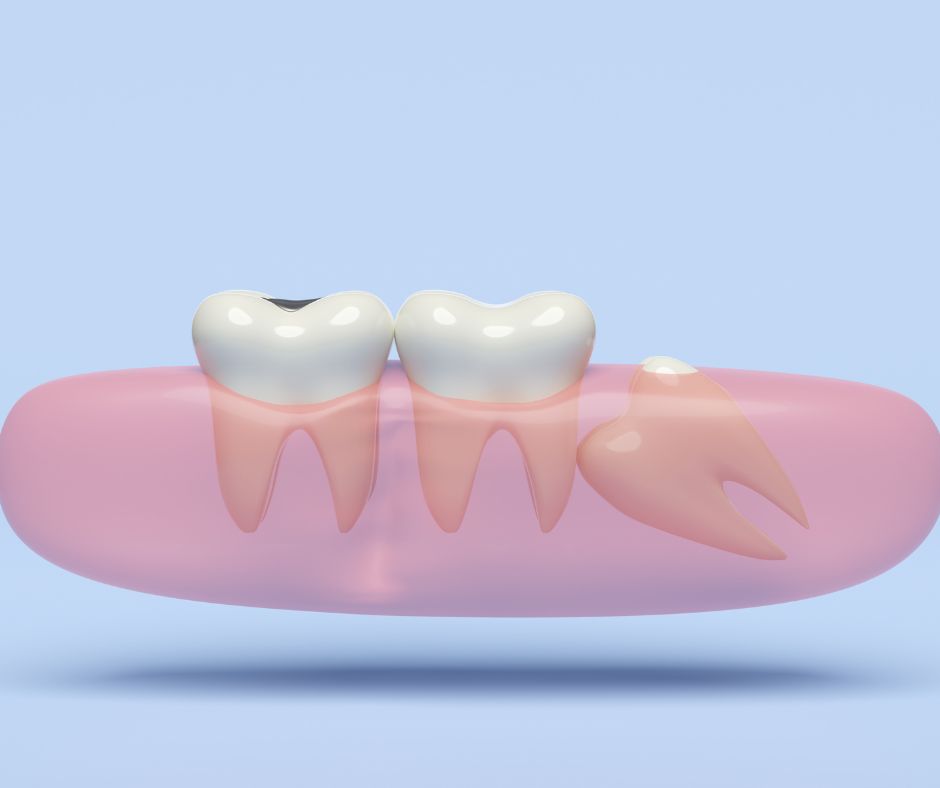Why Wisdom Teeth Are So Susceptible To Infection

Located in the rear of the mouth, our wisdom teeth generally make an appearance between the ages of 17 and 25. Also referred to as our third molars, they once aided early humans in breaking down chewy meats and raw vegetables. As is the case with any of our other pearly whites, our wisdom teeth are also susceptible to oral health issues, including cavities or dental decay (via Healthline). However, wisdom teeth, in particular, can be especially prone to infection. Swollen lymph nodes, gum inflammation, pain, swelling, fever, and bad breath are among some of the many different symptoms that can indicate a wisdom tooth infection.
Impacted wisdom teeth are more prone to infection
Many people nowadays experience overcrowding of teeth. With our third molars being among the last to arrive to the party in early adulthood, there’s not always enough room left over for them to grow in. This can lead to impaction, in which the tooth is stuck underneath our gums, unable to break through.
For impacted wisdom teeth that do manage to work their way above the gum line, they often grow horizontally, at an angle, or with a portion of the gums still covering them. This makes our wisdom teeth more difficult to get at with floss or a toothbrush. As a result, food particles, bacteria, and plaque can easily accumulate underneath the partial gum covering or in the cramped spaces between teeth if your third molars collide with a neighboring tooth. Thus, increasing the risk of infection.
Treatment methods for a wisdom tooth infection
Many people undergo wisdom teeth removal surgery altogether, such as in the event of an impacted wisdom tooth infection. However, an infection is still possible in the aftermath of the surgery for as many as two months following the procedure. Therefore, it’s important to be in contact with your dentist regarding any signs pointing to possible infection.